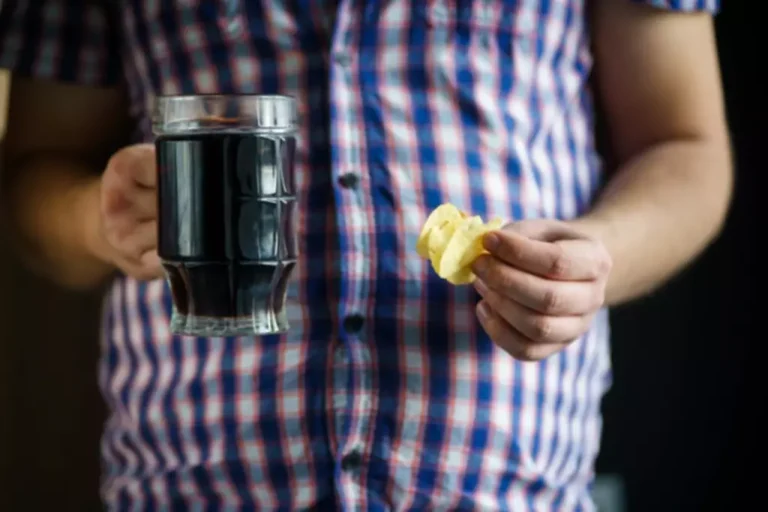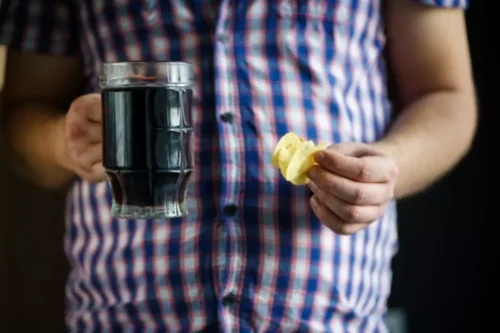
It will seek to counteract the sedating effects of alcohol by releasing more excitatory neurotransmitters. As the alcohol wears off, we are left with an artificially high level of stress hormones in the body. Have you ever woken up after a night of drinking and felt like your heart was beating out of your chest? Understanding food-related stress and the impact of anxiety on relationships are also important aspects of managing anxiety holistically. Additionally, considering factors like the potential link between dehydration and anxiety can contribute to a more comprehensive approach to anxiety management. Support groups such as Alcoholics Anonymous (AA) or anxiety support groups can provide valuable resources and community support for individuals working to overcome these challenges.
- Alcohol allergy and intolerance can result in similar symptoms but are caused by different underlying factors.
- If you are using alcohol as a self-medicating measure, you might feel it “works” to help you cope with your symptoms.
- As the body adjusts to sobriety, individuals may experience heightened anxiety due to the absence of alcohol’s sedative effects and the underlying issues that may have initially led to substance use.
- Just as alcohol consumption causes a wide range of effects on the body and mind, so does the period of withdrawal.
Anxiety and Alcohol: Does Drinking Worsen Symptoms?
- Occasional mild- to moderate alcohol use can actually be safe and reasonable.
- These disorders are characterized by persistent feelings of fear, worry, and unease that can significantly impact daily life.
- It can intensify the negative side effects of many of these medications, particularly if you take benzodiazepines.
- These symptoms often mimic those of anxiety disorders, creating a vicious cycle where individuals may turn to alcohol again to alleviate these symptoms, only to worsen their condition in the long run.
- However, you can make lifestyle changes to help you reduce your anxiety as well as learn to cope with it.
Your doctor may refer you to therapy, outpatient alcohol addiction treatment, or residential rehab for alcohol addiction. Detoxing at a rehab or hospital may be a necessary first step; make sure you ask your doctor for their medical opinion. You can use Recovery.com to find rehabs and outpatient programs that treat alcohol addiction.
The Science Behind Alcohol’s Impact on Anxiety Disorders
Alcohol can make you feel relaxed, but it’s fleeting, dangerous, and not a true state of relaxation. Reaching for alcohol to cope with stress can start a self-feeding cycle marked by anxiety and Halfway house eventual dependence. Developing coping strategies and seeking support are essential steps in managing anxiety during this transition. Engaging in therapy, whether individual or group-based, can provide valuable tools for addressing underlying triggers and learning healthy coping mechanisms. Anxiety returns in full force or even worse than it was before alcohol entered your system.

Can alcohol trigger panic attacks?
- This is because alcohol acts as a depressant on the central nervous system, altering brain chemistry and potentially triggering or intensifying feelings of anxiety.
- Ironically, the effects of drinking can be similar to the effects of anti-anxiety medication.
- Alcohol isn’t a healthy or sustainable relaxation tool, but relaxation techniques relevant to your preferences and needs are.
- People can inadvertently develop alcohol use disorder trying to stay afloat.
Another proposed theory refers to an expectancy component in people with anxiety who use alcohol. In this situation, a person expects to get relief from their anxiety symptoms when they consume alcohol because of its effect on the central nervous system (CNS). The whole idea behind self-medicating is using alcohol, drugs, supplements, or other substances as ‘home remedies’ to handle health problems. While this approach can relieve some symptoms, these aren’t doctor-recommended or prescribed methods. In many cases, self-medicating leads to other problems, including worsening symptoms and substance use problems.

Living with Schizophrenia: Insights, Challenges, and Support
At first, drinking can reduce fears and take your mind off of your troubles. It can help you feel less shy, give you a boost in mood, and make you feel generally relaxed. In fact, alcohol’s effects can be similar to those of antianxiety medications. alcohol and anxiety Alcohol anxiety is something you can avoid, by just saying no to alcohol.

These mood changes, sometimes called “hangxiety,” might indicate an underlying anxiety disorder or depression. It’s essential to see a healthcare provider if you commonly get hangxiety. They might suggest limiting or avoiding alcohol to help treat your symptoms. Remember to show kindness to yourself if you feel embarrassment, guilt, regret, or shame after a night of drinking.
Even though the phenomenon is mostly “all in your head,” it’s one of the few places we can’t escape. According to a 2019 paper, panic disorder has a strong association with AUD. People with AUD may have a higher risk of developing panic disorder, which can cause unexpected, recurring panic attacks.
Focus on Hydration Before, During and After Drinking

Art and music can alter your perception of the stressful event by helping you take a step back from it. Keeping your hands busy can also help you process stressful events without feeling overwhelmed. Alcohol might temporarily numb anxious thoughts and feelings, providing a sense of escape. Occasional mild- to moderate alcohol use can actually be safe and reasonable.


